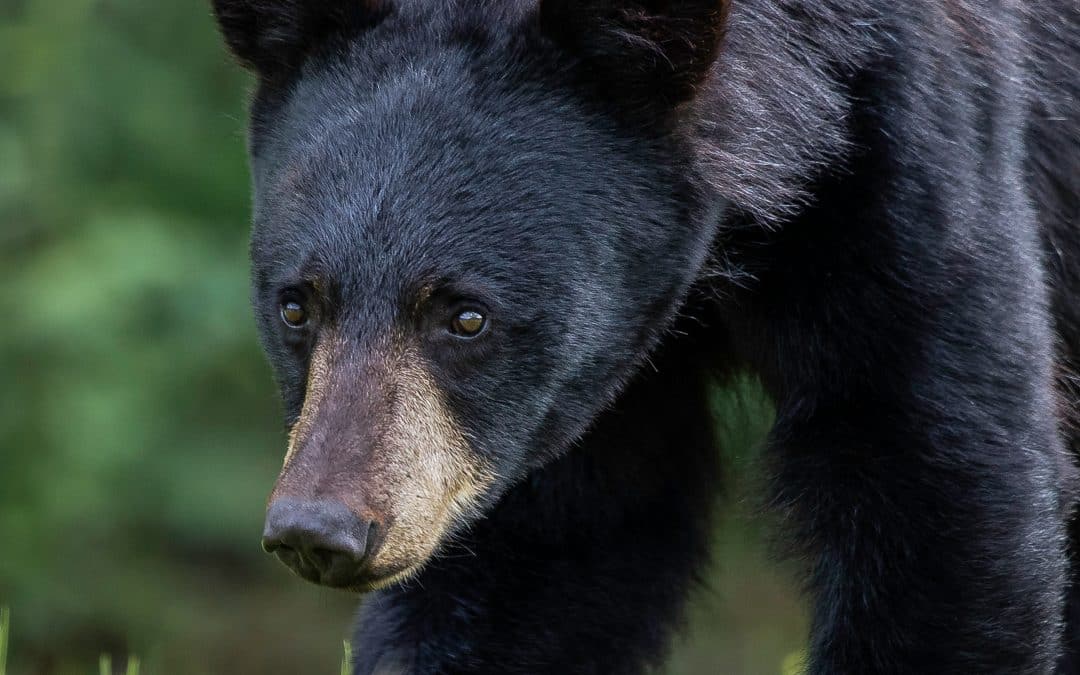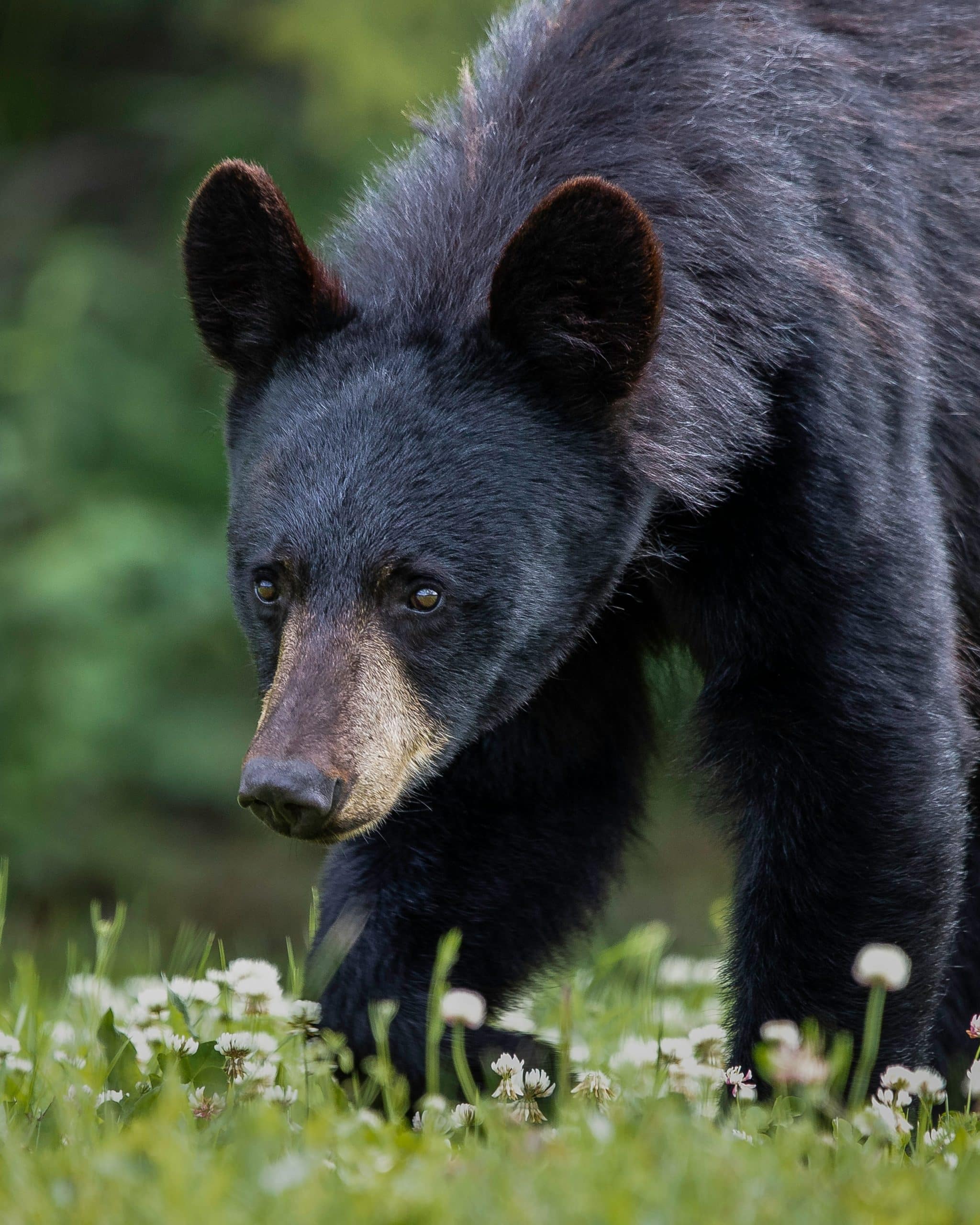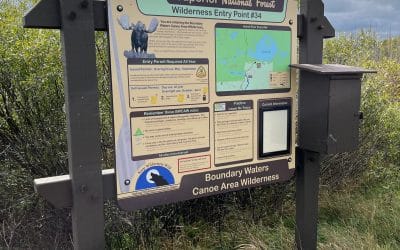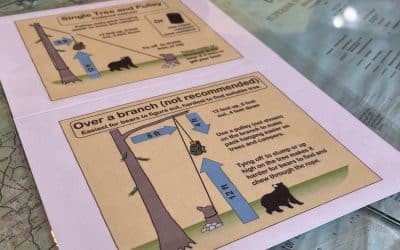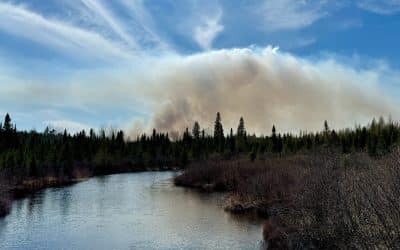UPDATE: The Forest Service sent a press release May 6 on this topic. Included in the press release is the following statement: “Our goal initially is to highlight the importance of all of us doing our due diligence to keep wildlife from becoming habituated. Except for gross violations or repeated violations, we intend to issue warnings for the first year of the order.”
If you bring a blue barrel to store food on a trip to the Boundary Waters Canoe Area Wilderness, you better hang it from a tree.
Otherwise, it could cost you $5,000. And you might end up in jail.
This according to an order issued April 19 by the U.S. Forest Service. The order applies to the entire BWCA. Other land across Superior National Forest is not included in the order.
The Forest Service has been relatively quiet about the order that could result in a massive fine and/or “imprisonment,” though they’ve been very vocal about bear issues in the BWCA in the leadup to the quota season.
According to the order, “In effect March 1-November 30 each year, except while being prepared, consumed, or under on-site visual observance, all food, food containers, scented items (such as soap, lip balm, toothpaste) and refuse shall be suspended at least 12 feet above the surface of the ground and not less than 6 feet horizontally from the trunk of a tree, or stored in an Interagency Grizzly Bear Committee certified bear resistant container.”
Blue bear barrels commonly used across the BWCA are not on this list. That means you’ll need to hang the barrel from a tree in order to be in compliance. The idea of hanging one of these large barrels could present challenges to both humans and trees, as they are clunky and often heavy when full or even partially full of food.
The food storage order is the result of increases in human-bear interactions with negative outcomes, according to the Forest Service.
The Forest Service says that, “Any violation of this prohibition is punishable as a Class B misdemeanor by a fine of not more than $5,000 for individuals and $10,000 for organizations, or by imprisonment for not more than six (6) months, or both.”
The food storage order requires visitors to properly store food unless in the process of eating, preparing or transporting food. Proper storage reduces the chance of bears being rewarded when in campsites, trails, portages, landings or other recreational areas, the Forest Service states. The Forest Service did not make a public splash about this change to policy. During an April 26 announcement the Forest Service made titled “Tips for Recreating in Bear Country,” there is no mention of the new law that could result in BWCA campers being fined or imprisoned for violating the order.
It’s worth noting that the rule also applies to the last month of winter camping in the BWCA, meaning people chasing lake trout during March will need to hang their food from a tree or in a certified container. If you don’t, you run the risk of being fined or going to jail. The Paddle and Portage team regularly camp in March and have never seen or heard of a bear coming into a winter campsite.
In recent years, there have been several areas with recurring bear sightings and interactions in the BWCA, including reports from Rose Lake, Duncan Lake and Daniels Lake in the Middle Gunflint Trail area. Other areas with abundant bear activity and interactions include the Moose Lake Chain near Ely, as well as areas at the end of the Gunflint Trail, including Seagull, Jasper, and Red Rock lakes.
In addition to proper food storage, there are other actions that visitors can take in bear country that help keep bears wild, alive, and healthy, including by making sure anything with a scent is properly stored, the Forest Service emphasizes. This includes, but is not limited to, toothpaste, wrappers, lip balm, soap, petroleum products and lotion.
Disposing of fish remains at least 200 feet from any campsite, portage, trail and shoreline is a requirement in the BWCA and can help reduce bear interactions as well.
Meanwhile, if you have questions about bear resistant food storage, visit the Forest Service’s website.
Other Recent Articles
Opinions Vary for BWCA Management as Public Input Phase Wraps Up
Photo courtesy of Superior National Forest The U.S. Forest Service continues to gather input from the public regarding management of the Boundary Waters Canoe Area Wilderness. This initial phase of “we want to hear from you” started March 29 and ends today (May...
BWCA Outfitters Say It’s Business as Usual as New Food Storage Rule Takes Effect
Recommendation for hanging food in the BWCA. Photo by Joe Friedrichs For some of the outfitters on the edge of the Boundary Waters, it’s a modest change from a recommendation to a rule. Not a big deal. “A nothing burger,” as one outfitter described it to me. I...
Fire News From the Boundary Waters Region
The Prescribed Banjo Fire burns near the Gunflint Trail May 14. Photo by Tanya Piatz for Paddle and PortageA prescribed burn lit this week by U.S. Forest Service crews working near the Boundary Waters Canoe Area Wilderness is now burning outside of its intended area....

